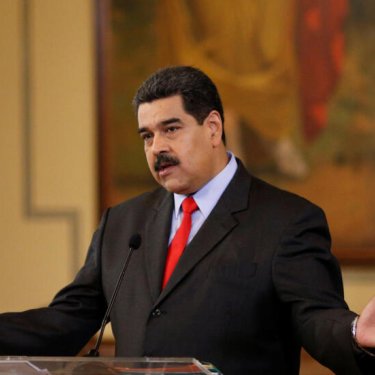Who will cover Venezuela’s elections as press freedom disintegrates under Maduro’s regime?

In the run-up to the Venezuelan presidential election on 28 July, Reporters Without Borders (RSF) warns that press freedom has crumbled under President Nicolas Maduro, who is seeking a third term in office. RSF urges the country's authorities to allow local and foreign journalists to cover the election, which will never be democratic without respect for the right to reliable information.
Opposition leader Maria Corina Machado – who has been barred from running in the presidential election – is completely absent from Venezuelan television. Despite this censorship, her party’s alternative candidate, diplomat Edmundo Gonzalez Urrutia, who is little known to the general public, is leading in the widely broadcast polls.
The facts are clear: the two terms of Nicolas Maduro, in power since 2013, have been marked by a massacre of independent journalism and media pluralism. According to a census by the Venezuelan NGO Espacio Público, which promotes freedom of expression, the National Telecommunications Commission has interrupted the signals of over 200 radio stations and more than a dozen television channels since 2016, as the government deemed these broadcasts subversive. Over one hundred print publications have ceased their activity since the start of Maduro’s presidency, unable to afford paper and printing supplies since the state took over the printing industry in 2013, according to the Instituto Prensa y Sociedad Venezuela (IPYS). Online media have suffered too: between January and October 2023 alone, the Maduro government blocked access to 48 news websites, according to the Venezuela sin Filtro project, which tracks digital censorship.
Journalists, finding themselves unemployed or unable to do their job, have left the country in droves. The Association of Venezuelan Journalists Abroad (APEVEX) estimated that, as of last March, one thousand reporters have emigrated. Since 2016, Foreign journalists and media have been regularly expelled or banned from entering Venezuela. In 2017, when the country was in the midst of a political crisis following the opposition's victory in the legislative elections, RSF publicly condemned the expulsion and denial of entry of 20 journalists, all of them banished in a matter of months. The German channel Deutsche Welle (DW), which also broadcasts in Spanish, has been censored since March.
"The Venezuelan presidential election campaign is taking place in a climate of censorship. In the space of a decade, Nicolas Maduro's regime has tried to strengthen the state’s monopoly of the media while reducing independent journalism. RSF calls on the Venezuelan government to guarantee that independent journalism continues, especially during this election period. No democratic election is possible if the opposition is banned from appearing in the mass media. As Parliament revoked their invitation for an EU mission to observe whether the 28 July elections are properly conducted, it is vital that foreign journalists are able to travel to Venezuela to cover the elections without running the risk of being arrested or expelled from the country.
Growing "information deserts"
The mass disappearance of the media has plunged Venezuelans in remote regions into “information deserts,” areas where reliable news is scarce. According to a 2023 map by the Press and Society Institute (YPIS), an NGO that monitors the country’s press freedom, more than 7 million Venezuelans – 21% of the population – have insufficient access to local sources of information. Nearly 30% of the population gets most of its news from free television channels, which cover fewer subjects of public interest, such as politics and the economy, due to state censorship.
Venezuela’s independent journalism is now almost entirely concentrated in the digital sphere. Yet many of these digital outlets struggle to survive as their funding heavily depends on philanthropy and international cooperation. The government’s continued censorship of news websites further hampers digital media from expanding their audiences, as does the lack of access to a consistent, high-quality internet connection plaguing much of Venezuela’s population.
